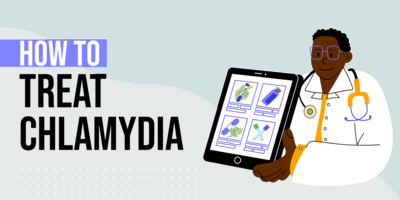
How to Treat Chlamydia
Chlamydia is a bacterial infection that is spread by sexual contact, according to the CDC. It is one of the most...
Read moreHelp patients book appointments with you on Solv. It's free!
18 instant-book locations








Help patients book appointments with you on Solv. It's free!
Those who should consider getting tested for hepatitis include individuals who have been exposed to the virus, those who have had sexual contact with someone infected, people who have shared needles or other drug paraphernalia, and those who have traveled to areas with high rates of hepatitis. According to the CDC, anyone born between 1945 and 1965 should also get tested, as this group has a higher rate of hepatitis C infection.
Getting tested for hepatitis is crucial because it can lead to serious health complications if left untreated, such as liver disease, liver cancer, and even death. Early detection through testing allows for immediate treatment, which can prevent these severe health outcomes and limit the spread of the virus to others.
Urgent care and walk-in clinics are convenient options for hepatitis testing in Charlotte. For instance, AFC Urgent Care on Monroe Rd and Tyvola Rd offers same-day and next-day appointments, which can be booked through Solv's website and mobile app.
Primary care providers are another reliable source for hepatitis testing. They can provide comprehensive care, including testing, treatment, and follow-up.
Free STD testing and community health centers in Charlotte also offer hepatitis testing. These centers provide accessible and affordable care to the community, regardless of income level.
At-home testing kits are also available for those who prefer privacy and convenience. These kits can be ordered online, and the sample can be sent back to the lab for analysis.
Charlotte, located in Mecklenburg County, has seen a steady increase in hepatitis cases over the years. According to the CDC, the rate of hepatitis C in Mecklenburg County is higher than in nearby counties such as Raleigh County and Forsyth County. This trend is concerning and highlights the need for increased testing and awareness in the area.
Risk factors for hepatitis in Charlotte include unprotected sex, sharing needles, and travel to high-risk areas. The city's growing population and increasing drug use are also contributing factors to the prevalence of hepatitis.
In addition to hepatitis, Charlotte has seen a rise in other STDs such as gonorrhea, chlamydia, HIV, and syphilis. The rates of these STDs are higher than the national average, emphasizing the need for comprehensive STD testing and education in the community.
Solv has strict sourcing guidelines and relies on peer-reviewed studies, academic research institutions, and medical associations. We avoid using tertiary references.
Annual Wellness Exam in Charlotte
Chickenpox Vaccine in Charlotte
DOT Exam in Charlotte
Ear Wax Removal in Charlotte
Eye Exam in Charlotte
Flu Shot in Charlotte
Hepatitis Vaccine in Charlotte
Measles Vaccine (MMR) in Charlotte
Pap Smear in Charlotte
Physical Exam in Charlotte
Shingles Vaccine in Charlotte
Sinus Infection Treatment in Charlotte
Sports Physicals in Charlotte
Tetanus Shot in Charlotte
Typhoid Vaccine in Charlotte
Well-Woman Exam in Charlotte
Yellow Fever Vaccine in Charlotte
A1C Test in Charlotte
CMP Test in Charlotte
Chlamydia Test in Charlotte
Diabetes Test in Charlotte
Gonorrhea test in Charlotte
H Pylori Test in Charlotte
HIV Test in Charlotte
Hepatitis test in Charlotte
Herpes Test in Charlotte
Mono Test in Charlotte
Pregnancy Test in Charlotte
STD Testing in Charlotte
Strep Test in Charlotte
Syphilis test in Charlotte
TB Test in Charlotte
Thyroid Test in Charlotte
Trichomonas Test in Charlotte
Vitamin D Test in Charlotte
Tips, advice, news—your resource to stay healthy and safe while improving your experience with healthcare providers when you need them.